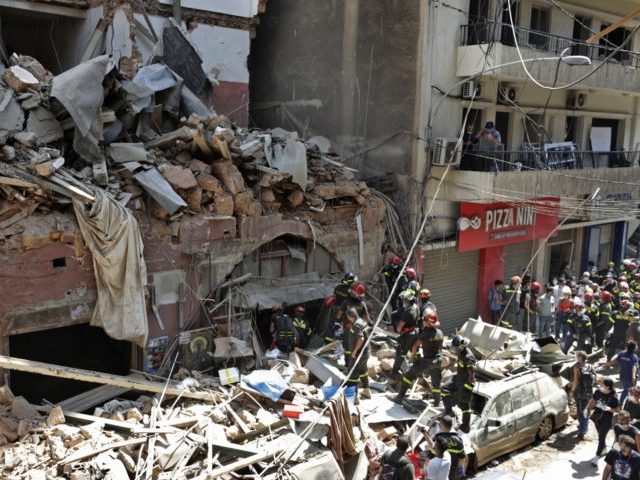An estimated 80,000 children have been displaced by the explosion in the Port of Beirut on Tuesday, the United Nations Children’s Fund (UNICEF) said on Thursday.
Tuesday’s explosion killed at least 150 people, injured 5,000 more, and left hundreds of thousands homeless. So far, hundreds of people have been reported as missing. “[M]any children have suffered trauma and remain in shock,” UNICEF said.
“Over the past 48 hours, UNICEF continued to coordinate closely with authorities and partners on the ground to respond to the urgent needs of families affected, focusing on health, water, and the wellbeing of children,” UNICEF Deputy Representative in Lebanon Violet Speek-Warnery said Thursday.
The explosion occurred in the main port of Beirut, Lebanon’s capital. “[T]he main lifeline of the country… is now totally destroyed,” UNICEF noted.
As of Thursday, there were “numerous reports of children who have been separated from family members, some of whom are still missing,” the U.N. agency said.
Maternal healthcare facilities and children’s hospitals were among the buildings destroyed by the blast, which obliterated entire blocks.
“At least 12 primary healthcare facilities, maternal, immunization, and newborn centers in Beirut have been damaged, impacting services for nearly 120,000 people,” the report stated.
“A children’s hospital in [Beirut’s] Karantina area, which had a specialized unit treating critical newborns, was destroyed … remaining operational hospitals are overstretched [treating those injured by the explosion] and have been depleted of critical medical supplies,” UNICEF said.
“Five out of seven UNICEF-supported vaccine cold rooms were destroyed in the blast, affecting critical vaccination programs. Many schools have reported damage in Beirut and the surrounding area, with assessments ongoing into the level of damage,” the agency added.
Lebanon’s Prime Minister Hassan Diab said on Tuesday that officials believe 2,700 tons of ammonium nitrate – negligently stored near the Port of Beirut by Lebanese authorities since 2013 – caused the explosion, though exactly how the cargo was ignited remains unclear. Ammonium nitrate is a highly combustible chemical compound used as fertilizer and to manufacture explosives.
The massive blast leveled several city blocks near the port area. Critical grain stockpiles stored near the explosion site were also destroyed, seriously threatening Lebanon’s food supply, already dwindling prior to the blast amid an ongoing economic crisis. The explosion compromised the electric grid servicing the area near the port, severely hindering rescue operations. Search and recure crews are limited to working only during daylight hours, meaning many casualties have likely yet to be discovered and that the total casualty count could sharply increase in the coming days.

COMMENTS
Please let us know if you're having issues with commenting.